
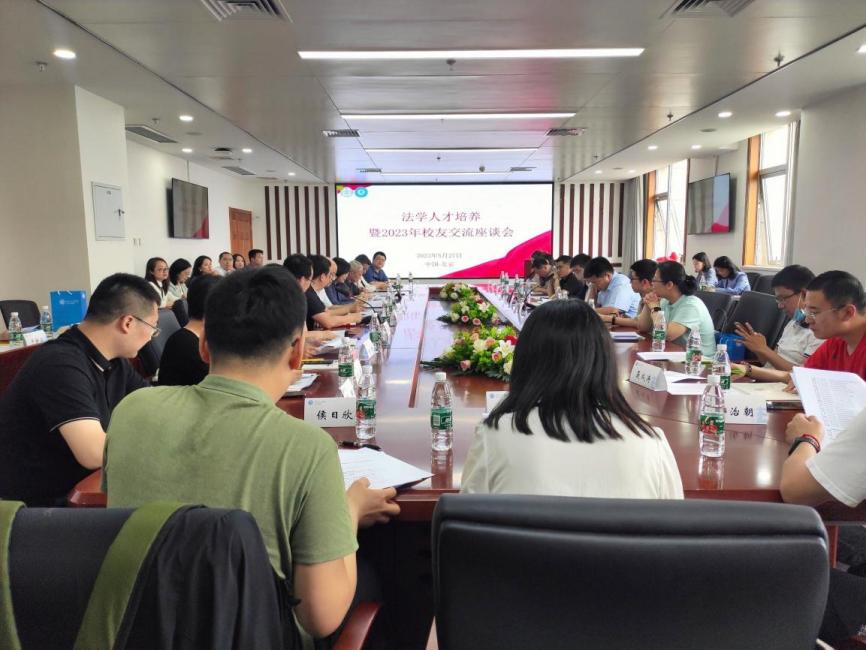
On the afternoon of May 27th, the Beijing Normal University Symposium on Law Talent Training and Alumni Exchange for 2023 was successfully held in Room 1822 Gao Mingxuan Academic Lecture Hall of the Rear Main Building.
Professor Liang Yingxiu, Dean of the Law School and President of the Beijing Normal University Law School Alumni Association, Professor Chai Rong, Secretary of the Party Committee of the Law School and Executive Vice President of the Beijing Normal University Law School Alumni Association, Professor Yin Jianfeng, Vice Dean, Professor Zuo Jianwei, Professor Liu Peifeng, Director of the School Office and Deputy Secretary General of the Beijing Normal University Law School Alumni Association, Professor Liu Hang, Secretary General of the Beijing Normal University Law School Alumni Association, and nearly 60 alumni representatives attended the meeting.
Vice Dean Yin Jianfeng presided over the speech and the flag awarding ceremony for the BNU Law School Running Team.
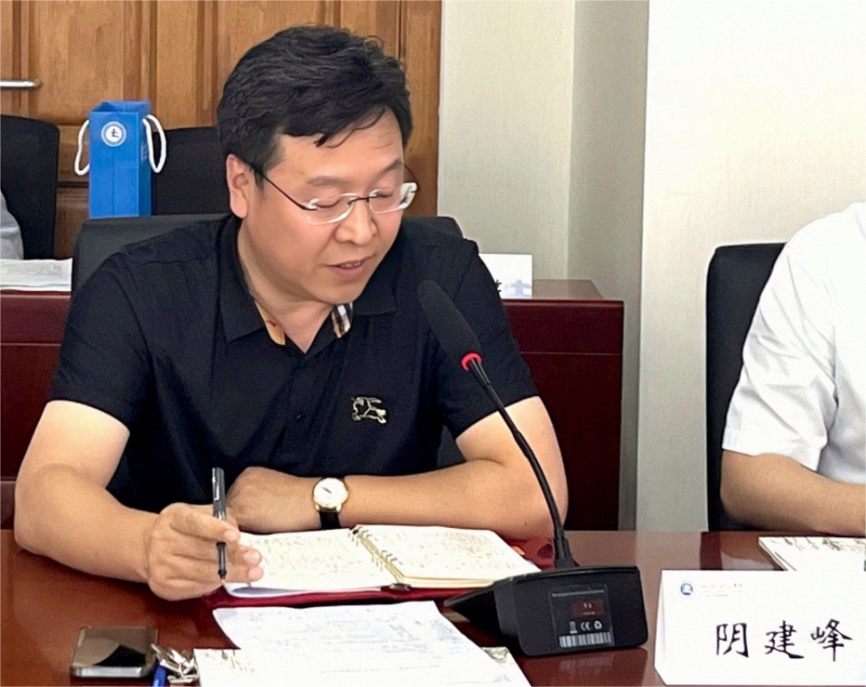
Firstly, Dean Liang Yingxiu delivered a welcome speech.
Dean Liang Yingxiu extended a heartfelt welcome to all returning alumni, voicing deep admiration and high praise for their remarkable accomplishments and stellar contributions within the legal profession. He also expressed profound gratitude for their enduring support of their alma mater and the Law School. Following this, Dean Liang Yingxiu highlighted the college's recent strides in talent cultivation and disciplinary development, articulating his hope to leverage the alumni association platform to fulfill the tripartite role of alumni supporting new graduates, mutual aid among alumni, and the college's support for its alumni. Concurrently, Dean Liang Yingxiu looked forward to the valuable input from returning alumni on the School's development and educational initiatives. On behalf of the Law School, he conveyed his warmest wishes and concern for all alumni.
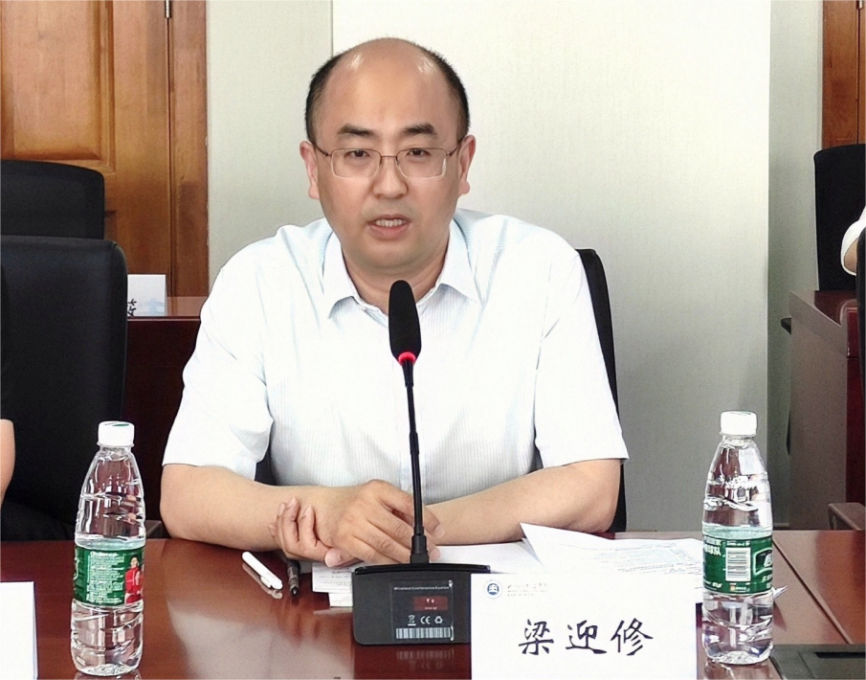
In order to build a diversified interactive platform, better promote communication among alumni, and enhance the cohesion of the alumni association, the "BNU Law School Running Team" was established under the spontaneous initiative and organization of alumni. Liu Chao, a JM who graduated in 2011 and Deputy Director of the Legal Affairs Office of Beijing Normal University, introduced the original intention of establishing the BNU Law School Running Team as the initiator, and looks forward to and welcomes more alumni to join.
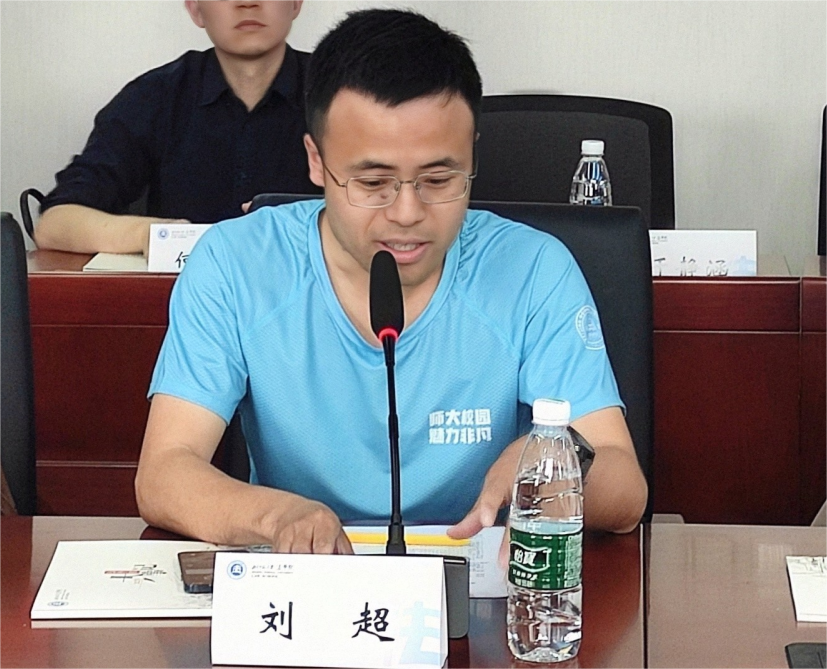
President Liang Yingxiu and Executive Vice President Chai Rong of the Beijing Normal University Beijing Normal University Law School Alumni Association, as well as Zhou Hua, a JM who graduated in 2011 and Vice President of the Association, awarded the flag to the "BNU Law School Running Team" on behalf of the Beijing Normal University Law School Alumni Association.
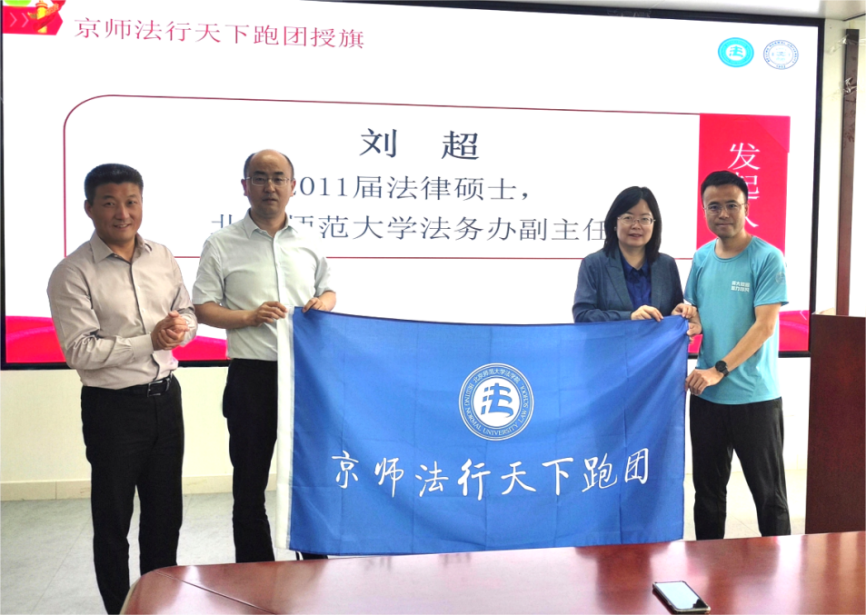
Vice Dean Yin Jianfeng presided over the symposium on "The Path to Cultivating Excellent Legal Talents in the New Era".
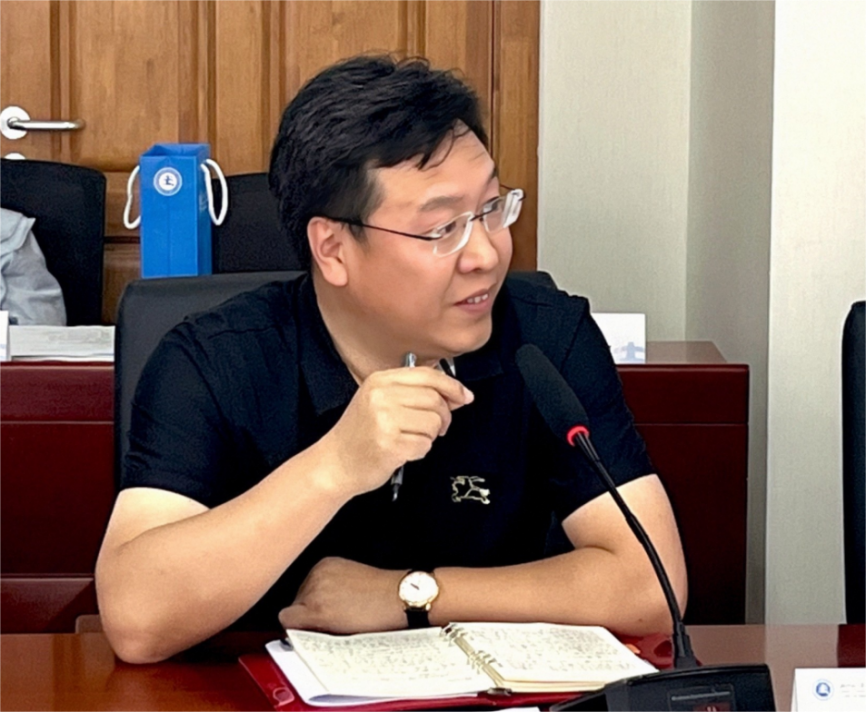
Professor Zuo Jianwei, Director of the Criminal Law Teaching and Research Center, initiated the symposium with a thematic address. Reflecting with a sense of nostalgia, Professor Zuo Jianwei noted with pride that among the alumni present at the gathering were many of his own students, a testament to the law school's outstanding track record in cultivating legal talent. He was deeply moved by their accomplishments. Professor Zuo Jianwei highlighted that the cultivation of talent is akin to the adage "peach and plum trees speak for themselves; the flowers bloom, and the fruits follow naturally." He emphasized that "teaching" and "learning" are the two essential components of legal education and development, with students playing the central role and teachers setting the example. Thus, he underscored the importance of strengthening teachers' sense of responsibility as a key priority. Professor Zuo Jianwei's message to the college was one of optimism for a luminous future and a call to action for alumni to unite in fostering the school's continued progress.
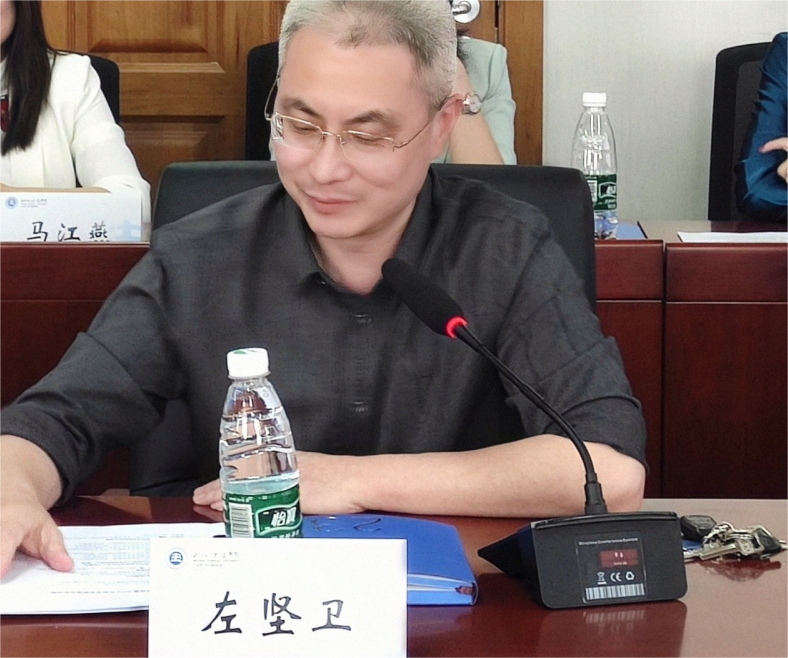
Han Shuai, a lawyer from Beijing Yunting Law Firm, who graduated from a undergraduate program in 2008, noted that legal talents are divided into academic talents and practical talents. Practical talents especially need to be able to speak and write. At the level of university training, case analysis teaching courses are very necessary and practical, and should be adhered to for a long time.
Dr. Jiao Yang, a 2014 graduate and now an Associate Professor of International Law at the School of Foreign Affairs, delved into the reform of teaching methodologies by examining the harmonization of domestic and international law promotion. Dr. Jiao primarily offered suggestions for reforming the legal education model by drawing comparisons across different legal systems. Concurrently, he expressed his recognition and admiration for the achievements of the Beijing Normal University Law School students in the simulated International Criminal Court competition. Dr. Jiao advocates for the cultivation of legal talent to aspire towards a model of interdisciplinary expertise. He emphasizes the importance of bridging the gap between academic theory and practical application, and suggests that inviting legal practitioners to educate students is an effective approach to achieving this integration.
Dr. Wang Xiaoxue, a 2018 graduate and current prosecutor at the Shunyi District People's Procuratorate in Beijing, offered insights on the cultivation of legal talent informed by her hands-on experience in case management within the procuratorate. She underscored the significance of translating theoretical knowledge into practical skills, while also highlighting that the accumulation of a solid theoretical foundation is the cornerstone of effective practice. Dr. Wang emphasized that the theoretical knowledge acquired during one's student years exerts a lasting influence throughout one's professional career, making the study of legal fundamentals an indispensable aspect of legal education. Additionally, she advocated for the integration of suitable internships and practical training to complement the theoretical learning, ensuring that future legal professionals are well-rounded and equipped to meet the demands of their careers.
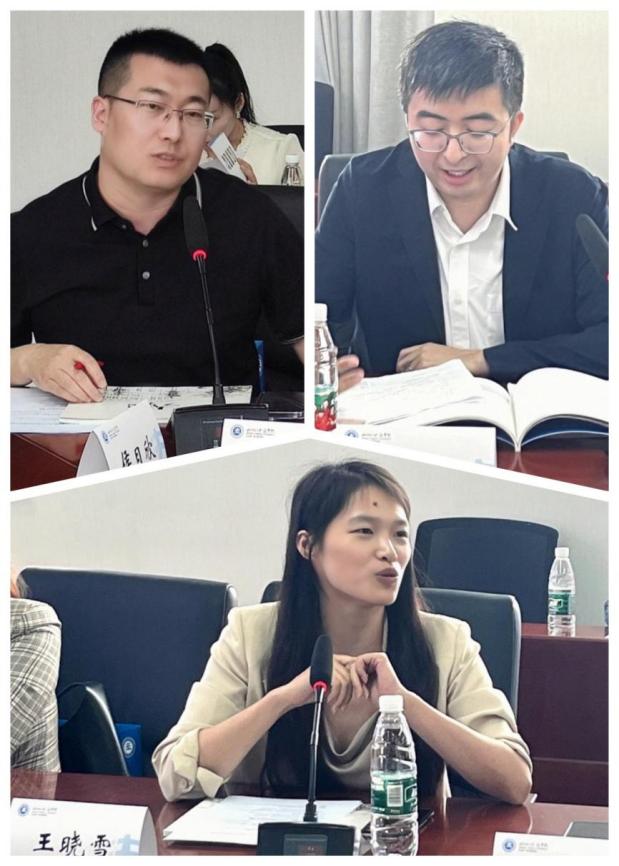
In the lively discussion session, Professor Liu Peifeng, Director of the Teaching and Research Center of Constitutional and Administrative Law, along with alumni Nie Chengtao, Kang Wenjuan, and Wang Shuai, engaged in a spirited exchange of perspectives.
Drawing from his extensive teaching and research background, Professor Liu Peifeng offered nuanced and insightful comments on the nurturing of legal professionals. He passionately argued that the crux of cultivating legal talent remains the development of "character." He advocated for a training framework that centers on human freedom and dignity, rather than being dictated by the whims of capital and market forces. Professor Liu delved into the nuanced balance between utility and futility, debunking the utilitarian approach from a legal standpoint and urging his peers to uphold the spirit of "freedom for its own sake." In conclusion, Professor Liu highlighted the importance of legal professionals maintaining an unwavering stance of non-conformity, independent thought, and a breadth of perspectives in an era dominated by data and information.
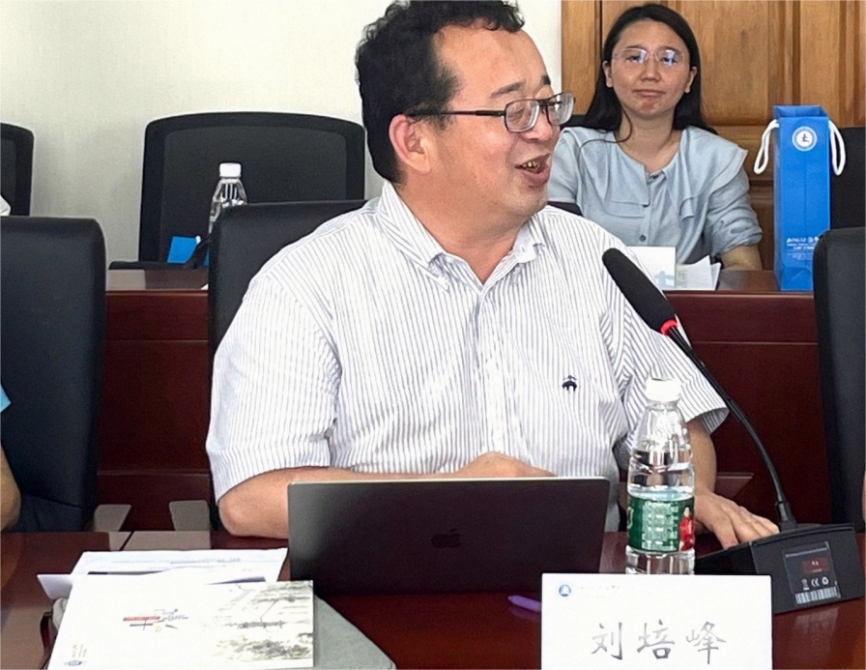
Nie Chengtao, a LL.M. who graduated in 2009 and a lawyer at Beijing Tianyue Law Firm, conducted a discussion based on his practical experience at the law firm. He believes that the cultivation of legal talents can be summarized into three aspects, namely writing ability, learning ability, and innovation ability. The exceptional situations and complex cases encountered in practice are the best moments to test a legal person's comprehensive abilities, so the above three abilities should be cultivated from the beginning of legal studies.
Kang Wenjuan, a JM who graduated in 2012 and serves at the Capital Institute of Pediatrics, discussed and discussed from the perspective of diversified employment opportunities for law school talents. A detailed introduction was given to the current employment situation of law school students in the hospital industry, and support and encouragement were expressed for the diversified career choices of younger generations.
Dr. Wang Shuai, a 2016 graduate and the Vice Dean of the Law School at the Central University for Nationalities, introduced the concept of "talent cycle cost" in the context of institutional development. He contended that the model and outcomes of talent cultivation should be refined through a four-year iterative cycle, a principle that applies equally to individual career planning and academic discipline construction. Furthermore, Dr. Wang Shuai underscored the pivotal role of disciplines within an academic institution, likening them to the soil from which the branches of talent cultivation grow. He emphasized that the work of nurturing talent must be firmly grounded in the robust foundation of a well-developed disciplinary framework.
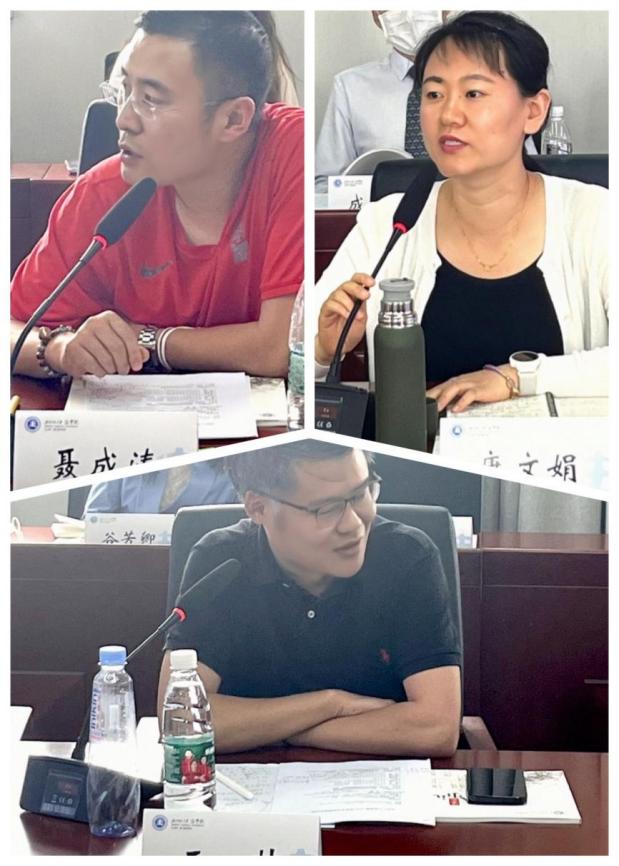
Vice Dean Yin Jianfeng summarized and summarized the lecture content of the four speakers and four participants in the first discussion session, and fully affirmed the constructive suggestions put forward by the eight speakers.
He emphasized that the cultivation of exceptional legal professionals must adeptly navigate three key dimensions. The first tier concerns the character of legal professionals. Guided by the university's motto, "Learn, so as to instruct others. Act, to serve as an example to all," and the school's ethos of "Pursue Moral Education, Promote the Rule of Law," the objective at Beijing Normal University is to nurture legal talents who embody both moral integrity and professional expertise, blending virtue and law in their development. The second tier addresses the interplay between legal theory and practice. Legal knowledge and skills are interdependent, necessitating both a profound respect for the depth of legal scholarship and the proficiency to engage with individuals and the practicalities of the profession. Both aspects are crucial and cannot be overlooked. The third tier is the holistic and balanced advancement of legal talents. Law is a field that engages with the interrelationships between individuals, society, and even humanity and nature. Beyond the realm of law, the importance of humanistic concern must be underscored. The essence of legal studies is rooted in the recognition and defense of human rights. Thus, the cultivation of legal talents can only be realized through a commitment to integrating foundational legal knowledge with humanistic literacy, thereby producing genuine legal professionals who hold an inner conviction in the rule of law. Only by skillfully managing the balance between these three dimensions can we effectively nurture a new generation of legal professionals who are steadfast in their ideals and beliefs, brimming with patriotism, and grounded in a robust legal foundation.
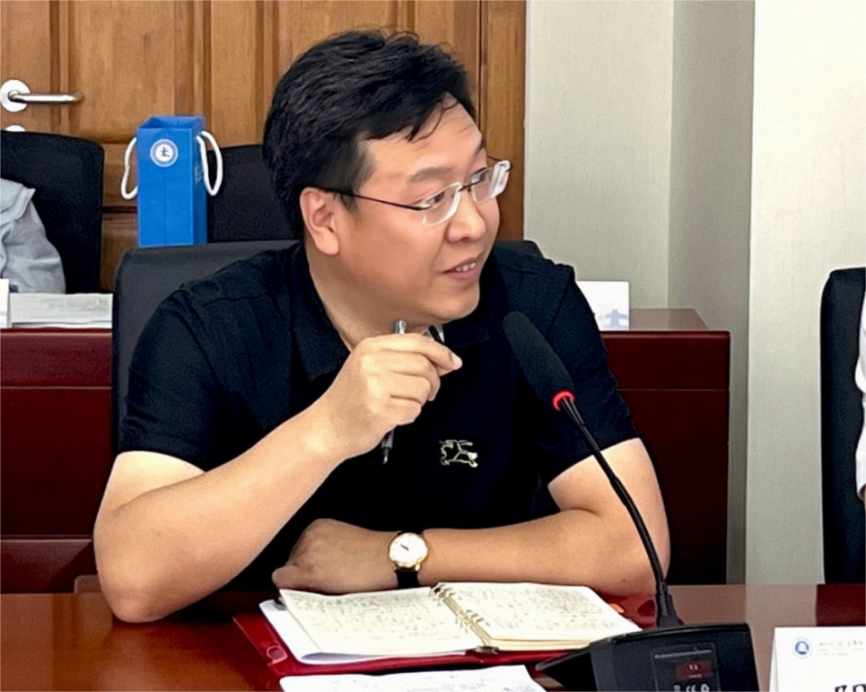
Mr. Liu Hang, Director of the Office of the Law School of Beijing Normal University and Deputy Secretary General of the Beijing Normal University Law School Alumni Association, presided over the discussion session on "How Alumni and the School Can Develop Together".
She pointed out that schools are a common development body based on academic connections, and teachers, students, and alumni are the three naturally formed entities. The integration of internal and external resources is an important process of internal and external circulation transformation, and also an important pivot to empower the construction of colleges. Taking this opportunity, Liu Hang expressed the gratitude of the School to alumni for their donations and feedback.
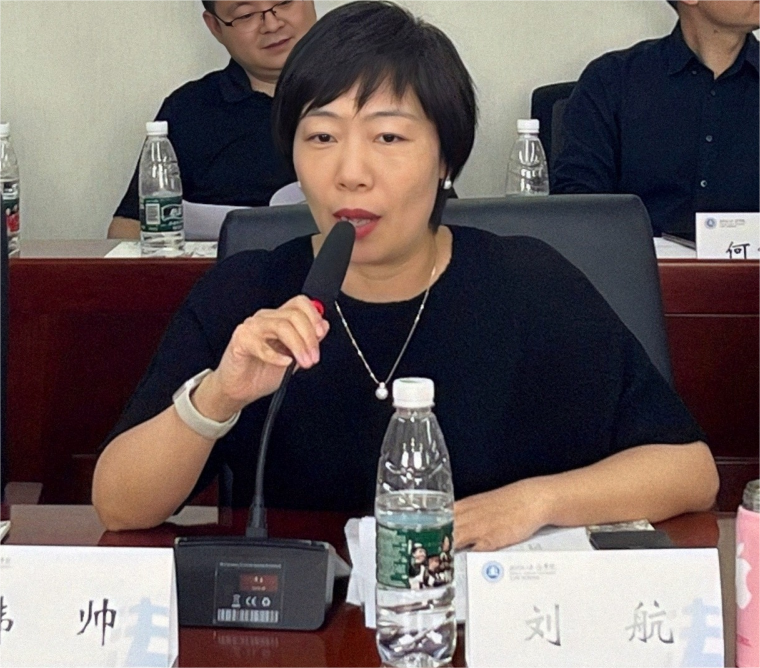
Guo Shaojun, a visiting scholar and lawyer at Beijing Jingshi Law Firm, presented his insights from the perspective of the importance of practical teaching, based on his own experience. He believes that from the practical needs of law firms recruiting interns, the proportion of practical training such as case teaching should be increased, so that more law students can understand the comprehensive nature of law through practical training, which is more conducive to individual career planning and talent cultivation in the college.
Dr. Tian Haixin, a 2015 graduate and associate professor at the School of Humanities, North China Electric Power University, proposed a new idea of "alumni think tank platform". This platform not only has the ability to integrate alumni information, but also reserves resources for the construction of colleges and schools, and proposes to provide assistance from external mentors for the cultivation of legal talents, which is a win-win mechanism with multiple benefits.
Dr. Hu Shuqi, a 2021 graduate and lecturer at the National Academy of Judges of the Supreme People's Court, elaborated on the differences between practical requirements and theoretical knowledge based on her experience in training Supreme Court judges. She emphasized that maintaining a habit of lifelong learning and an attitude of humbly seeking advice are the basic qualities of qualified legal professionals.
Hou Rixin, a LL.M. who graduated in 2017 and serves at the Central Party School (National School of Administration), expressed her gratitude towards her alma mater and noted that it is the emotional and power connection point for alumni. If organizations such as universities and colleges exist, such power will always exist. Alumni shine in their familiar fields and expertise, and also bring glory to their alma mater and school.
Qiu Zhichao, a JM who graduated in 2019 and assistant judge of the Fourth Intermediate People's Court of Beijing, noted that alumni's sense of belonging to their alma mater comes from the school's help to everyone's growth. In the long run, helping current students is helping alumni, and helping alumni is helping current students.
Bai Yangming, partner at Haofeng Law Firm, who graduated from the undergraduate program in 2010, lamented that the law school of Beijing Normal University is different from other law schools in that it has the exemplary style of " Learn, so as to instruct others. Act, to serve as an example to all". This teacher training style has injected a solid foundation into the cultivation of law schools and has become a common concern for every lawyer at Beijing Normal University.
Wang Yuejia, a prospective graduate of 2023 in the second degree program in law at Beijing Normal University at Zhuhai, gave a keynote speech from the perspective of training at the Zhuhai Campus, introducing the latest situation of the construction of the law discipline and talent cultivation under the "one body, two wings" pattern of our university to all alumni. Speaking of daily teaching between the two places, Wang Yuejia expressed gratitude to the teachers who travel back and forth between Beijing and Zhuhai to teach, and also thanks the School for providing rich learning opportunities and employment platforms for students from both places.
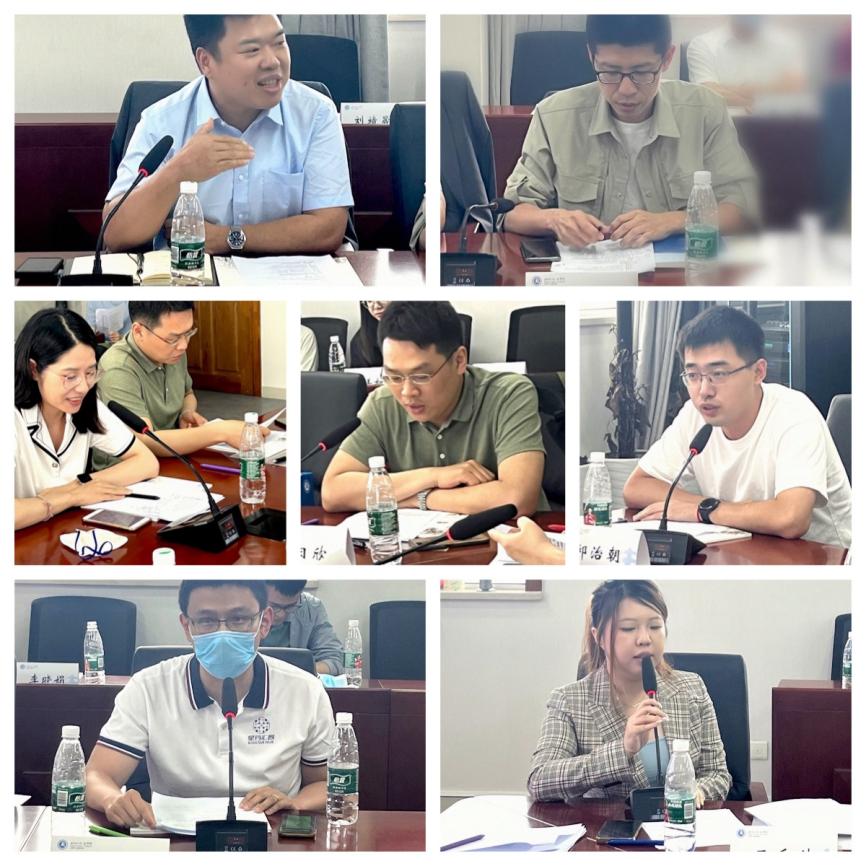
During the free speech session, Dr. Huang Linglin, a 2019 graduate and prosecutor of the Fourth Branch of the Beijing People's Procuratorate, expressed her excitement about returning to campus, reuniting with teachers and students, and gathering with classmates. Regarding Dean Liang Yingxiu's mention of the excellent achievements of the Law School, Huang Linglin expressed sincere blessings and pride. She believes that this sense of pride will also inspire alumni to practice the school motto of "Pursue Moral Education, Promote the Rule of Law" in various industries. At the same time, he expressed his hope for the normalization and two-way development of communication between the school and alumni.
Huo Ran, a JM who graduated in 2022 and a high school teacher at Chaoyang Foreign Language School in Beijing, approached ideological and political education from the perspective of high school education. He believes that the knowledge gained from legal education in law schools and the qualities of teaching by example from normal education at Beijing Normal University are exactly what it should be to engage in ideological and political education work. Huoran believes that in addition to unleashing the power gained at Normal University, it is also necessary to enhance alumni cohesion and feedback through as many alumni activities as possible, in order to contribute to the college and school.
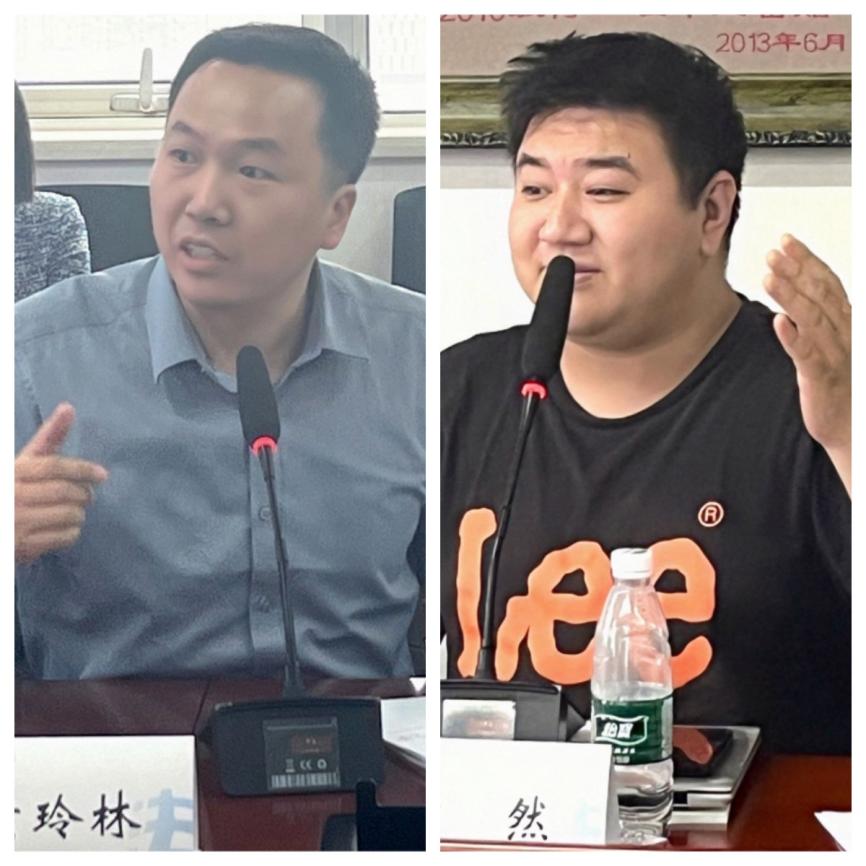
Associate Professor Shang Haowen, Secretary General of the Beijing Normal University Law School Alumni Association, presided over the summary session of the symposium. Associate Professor Shang Haowen expressed his sincere intention to engage in alumni work based on his close connection with National Taiwan Normal University. Through specific events, he explained how alumni and the college, as well as alumni, can help each other and develop together. He also introduced the main work of the Beijing Normal University Law School Alumni Association.
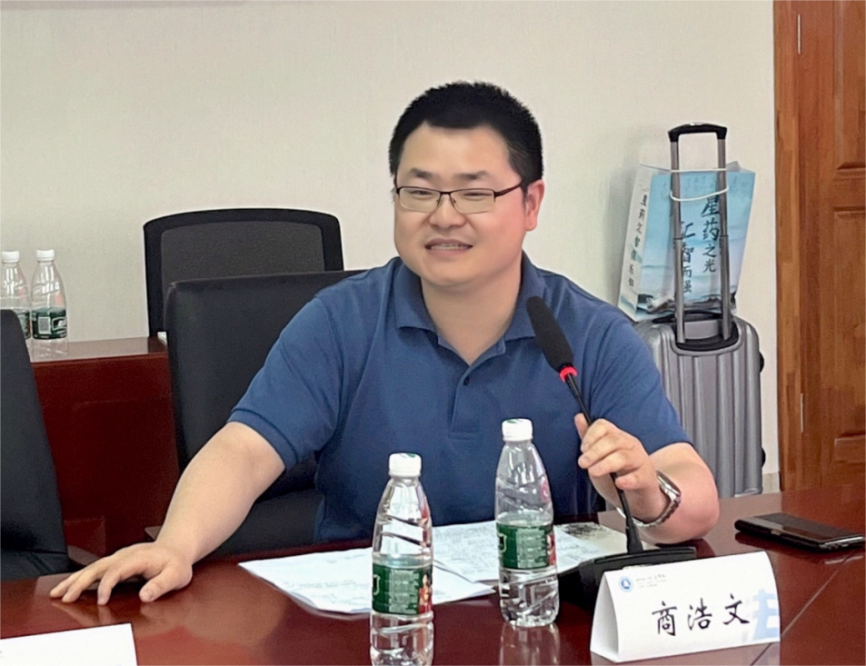
Concluding the event, Professor Chai Rong, Secretary of the Party Committee of the Law School and Executive Vice President of the Alumni Association, offered her closing remarks. Secretary Chai began by extending her heartfelt appreciation to all the alumni who had taken time out of their bustling schedules to return to their alma mater. She warmly received the enhancement plans and constructive suggestions offered by the alumni from their varied perspectives. Secretary Chai suggested that future alumni events embrace a wider array of engaging and dynamic formats, fostering greater interaction and networking opportunities through consistent dialogue. She expressed her hope that alumni would make it a habit to revisit the school frequently, sharing their insights and collectively advancing the progress of the school.
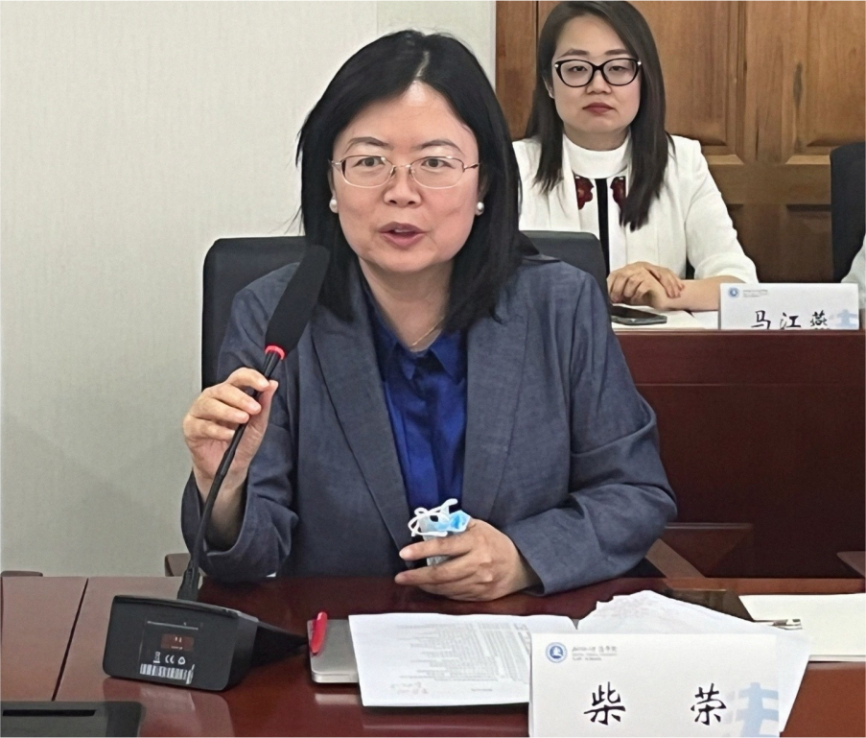
Once fledglings, now soaring eagles, the alumni of Beijing Normal University Law School have distinguished themselves across the legal landscape, embodying the essence of our school motto, "Pursue Moral Education, Promote the Rule of Law." They are the beacon of our Law School's pride. As the alma mater flourishes, so do our alumni; as our alumni thrive, so does our alma mater. With eager anticipation, let us all look forward to our next joyous reunion!
